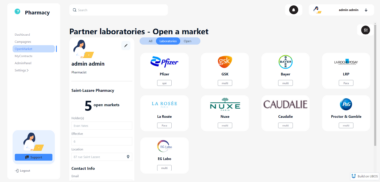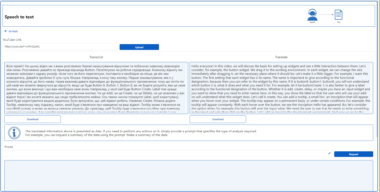Frequently Asked Questions (FAQ) - YugabyteDB MCP Server
Q: What is an MCP Server? A: MCP (Model Context Protocol) stands for Model Context Protocol. MCP is an open protocol that standardizes how applications provide context to LLMs. The MCP Server acts as a bridge, enabling AI models to access and interact with external data sources like YugabyteDB.
Q: What is YugabyteDB? A: YugabyteDB is a distributed SQL database, designed for cloud-native applications. It combines the scalability of NoSQL with the consistency of SQL.
Q: What are the prerequisites for using the YugabyteDB MCP Server? A: You need Python 3.10 or higher, uv installed, a running YugabyteDB database, and an MCP client like Claude Desktop or Cursor.
Q: How do I install the YugabyteDB MCP Server?
A: Clone the repository from GitHub, navigate to the directory, and run uv sync to install dependencies.
Q: How do I configure the server?
A: Configure the server using the YUGABYTEDB_URL environment variable, which specifies the connection string for your YugabyteDB database.
Q: How do I run the server?
A: Use the command uv run server.py to start the server.
Q: How do I connect the server to Claude Desktop?
A: Edit the Claude Desktop configuration file (Claude -> Settings -> Developer -> Edit Config), add the MCP server configuration under mcpServers, and restart Claude Desktop.
Q: How do I connect the server to Cursor? A: Go to Cursor > Settings > Cursor Settings > MCP > Add a new global MCP server. Add the configuration and save. Refresh to see if the server is enabled.
Q: Where can I find the Claude Desktop logs?
A: On MacOS: ~/Library/Logs/Claude. On Windows: %APPDATA%ClaudeLogs.
Q: How do I view server logs in Cursor? A: In the bottom panel of Cursor, click on “Output” and select “Cursor MCP” from the dropdown menu.
Q: What tools are provided by the server?
A: The server provides summarize_database (lists tables, schema, row counts) and run_read_only_query (runs read-only SQL queries and returns results as JSON).
Q: What environment variables are required?
A: The YUGABYTEDB_URL environment variable is required. It specifies the connection string for your YugabyteDB database.
Q: What should I do if I encounter connection issues?
A: Ensure the YUGABYTEDB_URL is correct, verify your database is running and accessible, and check that your user has the necessary permissions. Review logs in your MCP client for connection errors.
Q: How do I ensure uv is accessible?
A: If Claude cannot access uv, giving the error: spawn uv ENOENT, try symlinking the uv for global access:
shell sudo ln -s “$(which uv)” /usr/local/bin/uv
Q: Can I use this MCP Server with other databases besides YugabyteDB? A: This specific MCP Server is designed for YugabyteDB. However, you can find or develop MCP servers for other databases as well.
Q: How does this MCP Server integrate with the UBOS platform? A: UBOS provides a platform for building, deploying, and managing AI Agents. The MCP server enhances this by enabling agents to directly access and interact with data stored in YugabyteDB, simplifying agent development and orchestration.
Q: What are some potential use cases for this MCP Server within the UBOS ecosystem? A: Use cases include AI-powered data analysis, intelligent chatbots, automated report generation, enhanced data governance, and building custom AI Agents that can interact with and learn from your data.
YugabyteDB MCP Server
Project Details
- yugabyte/yugabytedb-mcp-server
- Apache License 2.0
- Last Updated: 5/27/2025
Recomended MCP Servers

A simple Model Context Protocol (MCP) server for generating memes using the ImgFlip API

A Serper MCP Server
MCP Server leveraging crawl4ai for web scraping and LLM-based content extraction (Markdown, text snippets, smart extraction). Designed for...
This is a Filesystem MCP server that could allow an LLM to read and list files from a...
This read-only MCP Server allows you to connect to Azure Data Lake Storage data from Claude Desktop through...

程序员延寿指南 | A programmer's guide to live longer


An MCP (Model Context Protocol) server for executing macOS terminal commands with ZSH shell. This server provides a...
Agentset MCP Server - Build RAG with Agentic superpowers

An MCP server for local machine in Claude Desktop
 From vibe coding to vibe deployment. UBOS MCP turns ideas into infra with one message.
From vibe coding to vibe deployment. UBOS MCP turns ideas into infra with one message.






